With the support and guidance from his wholesaler, Cornish retailer Chris Sharrinton has boldly embraced a dual-brand model. Robin Mannering reports
Down in the remote tail-end of Cornwall, two organisations are working alongside each other to the mutual benefit of both parties. Chris Sharrinton (pictured far right), owner of a 2,995sq ft Spar store in Helston, is one of the parties Appleby Westward, the Spar distributor for the South West, is the other. But we could just as easily be talking about Spar Helston’s in-store “marriage of brands” with Subway, a collaboration which owes much of its existence to the trust built up between Chris and Appleby’s managing director Mark McCammond (pictured right).
Chris turned to Subway in a bid to attract younger customers and complement his own food-to-go offering. He had already skilfully fought off an invasion by the multiples, which saw a nearby Tesco Extra and Sainsbury’s supermarket open within weeks of each other some four years ago. He had expanded the store from 2,750sq ft to 2,995sq ft, put in a new shop front and removed a gondola in order to widen the aisles. “We lost 25% of our turnover at the beginning. That’ll happen, you can’t stop that,” says Chris. “But if you offer your customers a good, clean, spacious environment to shop in, they will come back.”
Chris did recover much of his lost trade, but he knew he had to think outside the box to further boost footfall. “We were good at food to go, which gave us a point of difference,” he says. “But it involved an awful lot of work and we were finding it hard to manage and keep our ideas fresh.”
It was Chris’ wife Sue who first suggested linking up with Subway. “She said ‘Let’s rethink this - how about Subway?’ and I said, ‘Well, in Northern Ireland they have them’.”
Luckily for Chris, Mark had been involved in bringing the Subway brand to Spar stores in Northern Ireland when he worked for regional distributor Hendersons. And he immediately saw the potential for Helston, although he points out that it will only work in some stores. “If you have a store trading at north of £20 per square foot, you can’t afford to give up the space,” Mark says. “But if you can extend or grow your store you might consider this. It all comes down to sales density per square foot. If you’re trading at £10 per square foot, the space isn’t working hard enough and you’ve got a great opportunity to put Subway in.”
Appleby’s input was crucial in taking the idea forward. “Mark was able to point us in the right direction in terms of what to expect with contracts and licences,” Chris says. “I sent Mark the first offer from Subway, and Mark came back and said ‘No way, that’s not what you should be expecting, you should be expecting x,y and z’. The wholesaler knows what’s out there and can advise the retailer.”
So Chris designated 300sq ft of “wasted space” at the back of the shop for Subway, which opened last August. The franchise is totally self-contained, meaning there’s no arguing over overheads. Under the agreement, Subway can only sell a pack of crisps as part of a meal deal, so there’s more scope for its customers to shop in Spar.
Subway’s impact was immediate, although the knock-on benefits were more gradual. “Initially we lost about 25% when Subway opened because our own food-to-go sales dropped, but now we’re only about 5% down,” Chris says. “That 5% doesn’t matter when you compare it with what we’ve gained in terms of the rental and the increase in footfall. And without Subway, turnover would be much lower as we get hit hard in these parts during a recession.”
Mark says the new dual-brand model appeals to the theoretical ‘four guys in a white van’. “It’s very hard to get them to agree to go to one place for lunch,” he says. “You’ll have one who wants something hot and brown another who wants the healthy option and someone else who wants his tobacco and energy drinks. If these guys come here we can tick all the boxes.”
The same principle applies to a family in the evening, Chris adds. “The kids want Subway, the dad wants a pasty and the mum wants a salad. While they’re here they can get a four-pack of beer or bottle of wine. You can’t do that in Tesco.”
Subway has also succeeded in bringing in younger customers. “School kids didn’t come here before because there was no reason to. They didn’t want a sausage roll and a pasty. But Subway appeals to a younger profile,” Chris says. “Half of the people coming to Subway are buying something else in the shop. They weren’t coming in at all before so it’s a win-win.”
Mark adds: “For me, it’s all about the new transactions that come through the shop and the change in the mix. Once you’ve got the younger demographic in, they’re the ones buying the products with the margins, such as confectionery.” Indeed, due to more purchases of higher-margin products, profit is actually slightly up, Chris says.
Chris introduced a Costa coffee machine soon after Subway opened, with similar success. “The power of the brand means people buy it. We used to sell 150 cups a week with Spar Censa coffee, at £1.49 a cup. Now we sell 350 a week at a minimum of £2 a cup. I have to provide only water and milk and I get a 35% margin,” he says.
In fact, coffee is the subject of a revealing anecdote he tells to explain his strategy of capitalising on latest trends. “We went to Los Angeles in 1990 and everywhere sold coffee, so we tried selling it here, but we ended up throwing more away in six months than we sold because no one wanted it,” he says. “Now you wouldn’t go in to a c-store which doesn’t sell it. We just take longer in this country to take these things on board.”
With this insight in mind, Chris attends numerous international Spar study tours to catch up with the trendsetters. “I was in Philadelphia recently and the way food to go is delivered in convenience is amazing. Admittedly, much of convenience over there is forecourt, but you can order at a touchscreen TV while you’re filling up at the pump so when you get into the store it’s waiting for you,” he says. “The use of technology has to be the way forward in convenience retailing.”
True to his word, Spar Helston is one of five stores trialling a mobile phone app which offers users vouchers to use in store. Once the trial is completed it will be rolled out across Spar UK. “You punch the voucher code into the pin pad on the credit card machine and the till recognises it,” Chris explains. “The technology involved is phenomenal, and so is the database it will give us. When we can tap into the Subway database - they’ve got their own loyalty card - it’ll be great.”
Only a few dozen customers have signed up to the app to date, which Chris puts down to British scepticism to technology. “As we go on, and people see there’s a saving to be made, they’ll sign up,” Chris says. “These things eventually catch on, just as coffee did.”
In addition to embracing national brands, Chris and Mark also believe in the importance of stocking local products. “We offer fresh pasties from the guy down the road, and make our own sandwiches,” Chris says. Adds Mark: “We work on a basis of trust between wholesalers and retailers. There’s no criteria about how much local they stock.”
Fruit and veg is another focal area, expanding in both Chris’ store and across the Appleby estate, and the wholesaler works hard to ensure its retailers can capitalise on that growth. “We saw 14% growth in produce last year, and in a recent week it was up 50% on last year,” Mark says. “We’re putting more money than ever into refrigeration, as retailers need the space to make sure produce is displayed perfectly.”
Again, Mark returns to the theme of trust. “That’s the most important thing between a wholesaler and a retailer. You can’t buy that. If you can help fatten a retailer’s bottom line, you’ve got a retailer for life.”
Judging by such growth and the success of the bold ‘marriage of brands’, Spar Helston and Appleby Westward are in it for the long run.■
















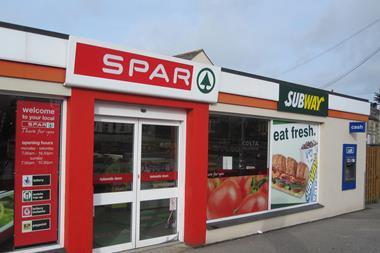
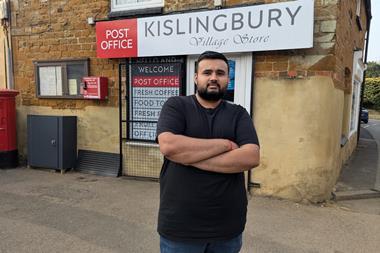
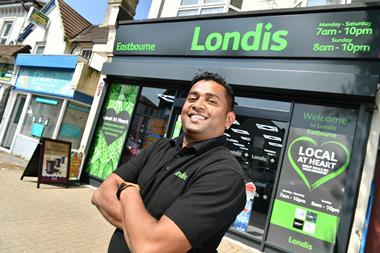
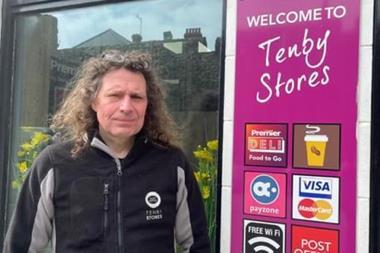
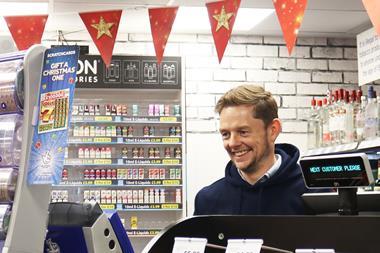
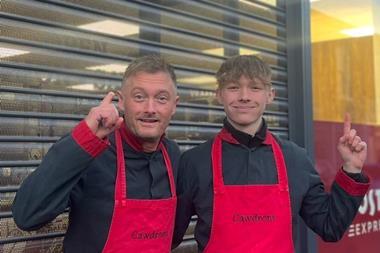



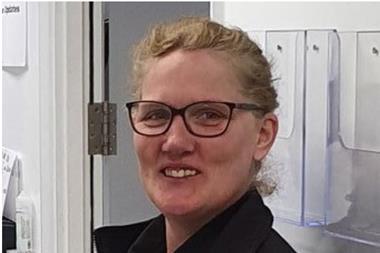
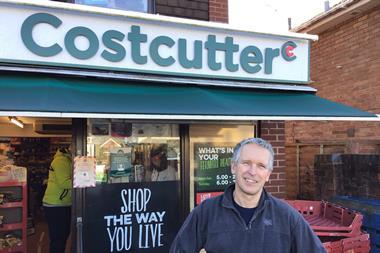
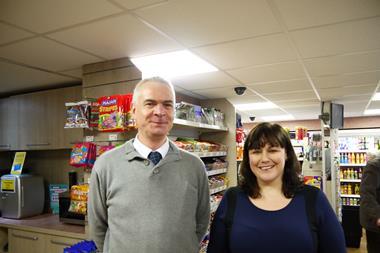
No comments yet